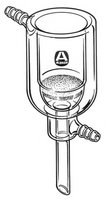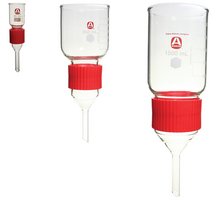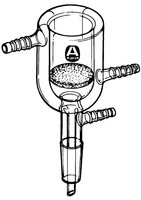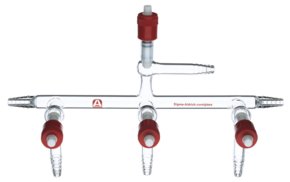详细说明
描述
Filament diameter: 2.85 ± 0.10 mm
Filament roundness: ≥95%
Melt flow rate: 39 cc/10 min
Melt temperature: ±180 °C
Print temperature: ±220-260 °C
Specific gravity: 1.14 g/cc
Spool Hub Diameter: 52 mm
Spool Size (D x H): 200 mm x 55 mm
Viscat softening temperature: ±90 °C
形式
solid (filament)
硬度
45D (, Shore D Hardness)
颜色
blue
正在寻找类似产品? Visit 产品对比指南
相关类别
Printed Electronic Materials
Specialty & Smart Polymers
一般描述
Flexible Thermoplastic Copolyester (TPC) Printing Filament is a rubber-like 3D printer filament with a Shore hardness of 45D that allows for the printing of flexible objects. This flexible filament will not deform or break when stressed by bending (Charpy notched impact strength test) and has shown ″flexural memory″which allows materials to return to their original shape after being bent, dented, or folded. In addition to its high flexibility, this filament features many additional beneficial properties such as high temperature resistance, good chemical resistance, high strength, and excellent UV resistance. Due to its ester linkages, this filament is degradable by hydrolysis and is made partially from renewable carbon content (e.g. bio-based oils). When not in use, the filament should be stored at room temperature in dry conditions, such as in a sealed plastic bag or in a closed container with desiccant. Recommended initial printer settings can be found in the ′General Print Settings′ file.
应用
Flexible thermoplastic copolyester (TPC) printing filament is a polyester-based material with properties similar to polyurethane-based (TPU) filaments. Due to their flexibility and stability, TPU has been used to synthesize nanoparticles for cartilage tissue engineering, peripheral nerve conduits, and tracheal scaffolds. Due to its ester linkages, thermoplastic copolyesters are able to undergo hydrolytic degradation more readily than polyurethanes, making them more suitable for biomedical applications. Cabrera et al. used thermoplastic copolyesters to print self-expandable polymer stents that can be implanted in a minimally invasive manner. These rapidly prototyped structures were shown to have properties similar to that of nitinol-based stents and to degrade via hydrolysis. Based upon these ideal properties, thermoplastic copolyester filaments have great potential in additional bioengineering applications.
法律信息
FlexiFil is a trademark of Formfutura VOF















 粤公网安备44196802000105号
粤公网安备44196802000105号